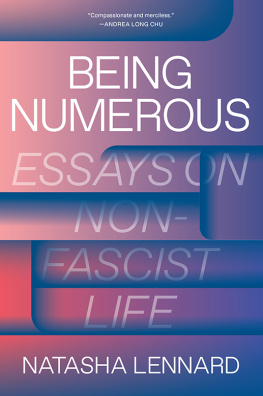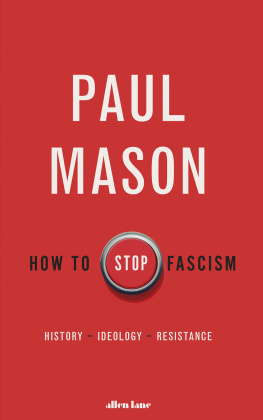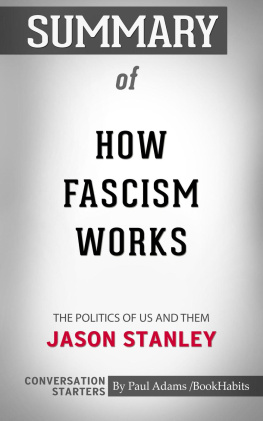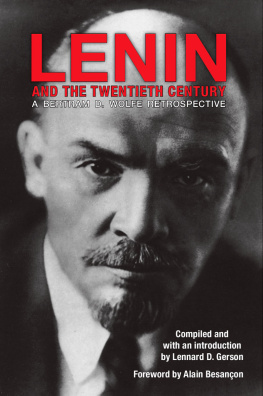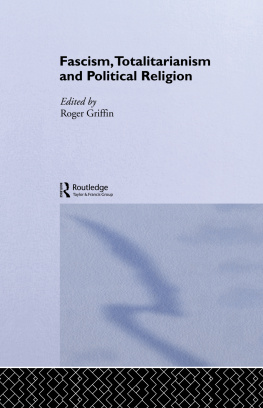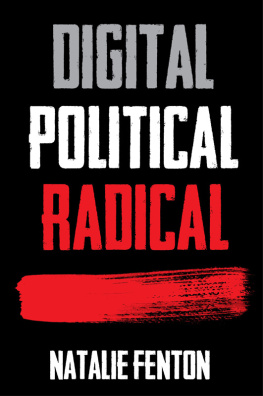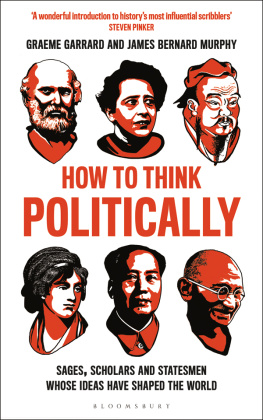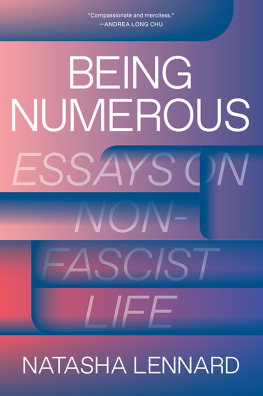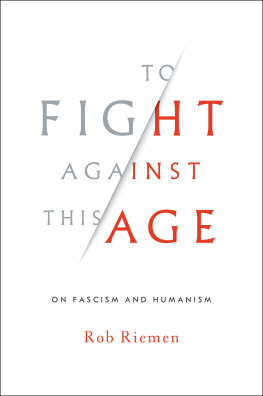
Praise for Being Numerous
Natasha Lennards lucid writing about militant social struggles from the inside is in some sense the simplest thing: these are the contemporary forms of what people have long done against intolerable conditions and intransigent powers. And yet engagement with them is so disallowed in the present that Lennards fidelity to investigation and insight feels hard-won, heroic, and deeply honorable. This is committed journalism at its finest: forbidden, formidable, ferocious. Joshua Clover, author of Riot. Strike. Riot: The New Era of Uprisings
I am always thrilled to read work by Natasha Lennard. Her combination of theory and hard reporting is as rare as it is essential. Questions about liberalism and anti-fascism that dominate our political moment are tackled here with theoretical sophistication, serious reporting, and an inimitable style. Sarah Leonard, coeditor of The Future We Want: Radical Ideas for the New Century
This book is a must read for those interested in elegant and clever writing on the urgent political and social issues of our day. Natasha Lennard offers sharp perspectives on the stale and complacent polarization of left and right. And there is a power and freshness here: amidst the glimpses of the personalwhile often couched in erudite philosophical discourseshe reveals herself to be a woman and thinker of substance. Razia Iqbal, journalist at BBC News
Deconstruction with a political bite, Natasha Lennard is the lefts answer to post-truth. Malcolm Harris, author of Kids These Days: Human Capital and the Making of Millennials Lennards writing puts feelings, facts and reasoning in close contact, respectfully learning from each other. As she shows so clearly, this communing of the faculties is one of the keys to an anti-fascist life. McKenzie Wark, author of General Intellects: Twenty-One Thinkers for the Twenty First Century
Lennard is no mere academic cheering from the sidelines, because fascism is never academic. In her testimonies and elegant critiques, she haunts the specter of its appearance, dealing with its pernicious effects on everyday life, and asks the pertinent question: what does a non-fascist life actually look like? Brad Evans, author of Histories of Violence: Post-War Critical Thought
Being Numerous
Essays on Non-Fascist Life
Natasha Lennard

First published by Verso 2019
Natasha Lennard 2019
This book draws on essays that have appeared in
The Evergreen Review, Real Life, Vice, Esquire, The Nation,
Salon, Logic, Fusion, and The New Inquiry.
All rights reserved
The moral rights of the author have been asserted
1 3 5 7 9 10 8 6 4 2
Verso
UK: 6 Meard Street, London W1F 0EG
US: 20 Jay Street, Suite 1010, Brooklyn, NY 11201
versobooks.com
Verso is the imprint of New Left Books
ISBN-13: 978-1-78873-459-2
ISBN-13: 978-1-78873-462-2 (US EBK)
ISBN-13: 9781788734615 (UK EBK)
British Library Cataloguing in Publication Data
A catalogue record for this book is available from the British Library
Library of Congress Cataloging-in-Publication Data
A catalog record for this book is available from the Library of Congress
Typeset in Sabon by MJ & N Gavan, Truro, Cornwall
Printed in the UK by CPI Group
Having only the force
Of days
Most simple
Most difficult
George Oppen, 1968
For my mother, Sindy, and my person, Lukas.
Contents
I was attending a memorial in late 2016. The previous night, an old friend had been thrown from a car when, swerving to avoid a deer carcass, the vehicle flipped on a Wisconsin highway. He had been en route to join the protests against the Dakota Access Pipeline at Standing Rock in North Dakota.
I met Clark in 2010, about a year after Id moved to New York from London for graduate school. We were part of a book club called the Anti-State Communist Reading Group, or something to that dramatic effect. The friendships forged there became the foundation of an anarchist-leaning cadre, which helped fuel Occupy Wall Street with radical leftist, sometimes blustery energy. Rake-thin, beanstalk-tall, moustachioed and grinning, Clark was a mischievous and above-all generous activist. We were thick as thieves for a long time but drifted apart in the years before his death. No animositywe chose different projects, different organizing spaces; far-left organizing in New York cleaved along ideological and personal lines. But the presence of Clarks absence, or his absent presence, was reason enough for a splintered scene to come together again that winter night in a community bookshop in Queens.
It was the evening of November 8th, 2016. We werent looking at our phones, and I didnt see the infographic maps of the United States turning red. Donald Trump took Indiana, Kentucky, swing-state Ohio, and battleground Florida before midnight Eastern time. We drank to our friend and lit candles, oblivious.
We are pressed, pressed on each other, / We will be told at once / Of anything that happens. So wrote poet George Oppen in his 1968 work Of Being Numerous, and its truer now, thanks to techno-capital, than when the poem was written. But that night in the little bookshop, pressing together for those few hours, we were not told at once of the results rolling in.
I walked away from the memorial, dead phone in hand, assuming like so many bad empiricists that Hillary Clinton was well on her way to a win. I joined a group of journalist friends at the tail end of an election viewing party. They sat open-mouthed in front of red infographics.
More lines from that same Oppen poem come to mind: It is the air of atrocity, / An event as ordinary / As a President / A plume of smoke, visible at a distance / In which people burn.
Before he died, Clark wrote a political call of sorts in a scribbled note: Live how we want to. Account for real needs and desires whilst making a million and one sacrifices. Do anything for each other Fight so hard that we dont feel as if were going to explode all the time, make that the great American pastime again. His best friend read out those words at the memorial. An invocation toward non-fascist life, written before the shuddering fact of a President Trump.
The following evening, people took to the streets in great numbers across the country; the New York crowd I joined was diverse and young. The chant went up, No Trump! No KKK! No Fascist USA! I wondered if the youngest among us, or those newest to protest, knew that this slogan was a riff on an old favorite, No Cops! No KKK! No Fascist USA!
I begin here with election night not because this collection is organized around it. A number of the essays herein were first written some years before Trumps ascendance; a number written after. It is unavoidable, though, that it haunts every piece, compiled as they are in this moment of emboldened racist fascism. But I bring up election night heremy election night, shaped as it was by a very different type of loss and hauntingto invoke the idea of accidents. In a sense, accidents are the proper subject of this book.
I dont mean happenstances, or misstepstoo many liberal commentators frame our current political moment as a baffling mistake; history taking a wrong turn. I mean accident as it was used by late theorist and urbanist Paul Virilio: the accident which is contained within, and brought into the world by, the inventions of progresswhat gets hailed as progressitself.
Next page
